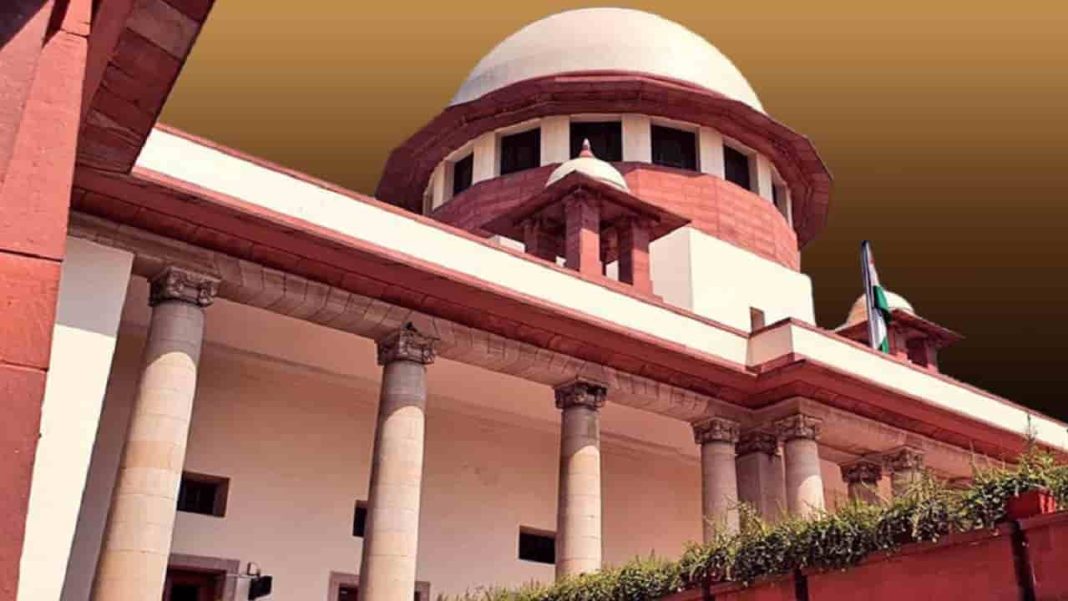The Supreme Court on Tuesday adjourned the petitions seeking reconsideration of the judgment in Vijay Madanlal Choudhary vs Union of India, which upheld constitutional validity of various provisions of the Prevention of Money Laundering Act (PMLA), till July 2024.
The Special Bench of Justice Sanjiv Khanna, Justice MM Sundresh and Justice Bela M Trivedi permitted petitioners/appellants, in the meantime, to file bail applications before appropriate forums, which shall be dealt with in accordance with law, uninfluenced by the fact that the present petitions/appeals were pending before the Supreme Court.
The case was earlier being heard by the Bench of Justice Sanjay Kishan Kaul, Justice Sanjiv Khanna and Justice Bela M Trivedi. On November 23, 2023, the Bench was dissolved, as the Union government sought more time to prepare and Justice Kaul was set to retire in a month.
A request was made to Chief Justice of India DY Chandrachud to constitute another Bench, which led to the replacement of Justice Kaul by Justice Sundresh.
On November 23, 2023, the Bench of Justice Sanjay Kishan Kaul, Justice Sanjiv Khanna and Justice Bela M Trivedi had orally opined that the Enforcement Directorate (ED) cannot invoke the Prevention of Money Laundering Act (PMLA) for tax evasion cases since offences under the Income Tax Act were not scheduled offences under the PMLA.
Appearing for Congress leader Govind Singh, Senior Advocate Kapil Sibal argued that in tax evasion cases, the ED was invoking PMLA by alleging that the offence of criminal conspiracy was involved.
He argued that Section 120B of the Indian Penal Code (IPC), which lays down the punishment for criminal conspiracy, was pertinently a scheduled offence under the PMLA.
In response to Sibal’s submission, the Court orally observed that tax evasion cases cannot be portrayed as a criminal conspiracy, only to invoke the PMLA.
If the Directorate of Enforcement said that by adding (Section) 120B IPC to a non-scheduled offence, cognisance can be can taken under the PMLA to register an ECIR, then this Court has an issue. Unless parent offence was included, 120B, as a standalone provision, will not make it a money-laundering offence, Justice Khanna remarked.
The Bench had earlier refused a request to defer hearing in these petitions in view of the ongoing Financial Action Task Force (FATF) review of the country’s anti-money laundering and terror financing laws.
Solicitor General (SG) Tushar Mehta, appearing for the Central government on November 23, 2023, expressed his strong reservations at the petitioners allegedly expanding the scope of the hearing through amendments to their petitions.
The SG added that the entire Act was now sought to be challenged, instead of some provisions, as earlier indicated. If the Court was allowing such an amendment, then the government authorities would need time to file a reply, he argued.
Sibal urged the Court to refer the matter to a five-judge bench. He stated that the questions of law involved may be better determined by a Constitution Bench.
The senior lawyer reiterated concerns that the PMLA gave the ED police-like powers, which forced an accused or a witness to give statements without knowing the grounds on which they were summoned.
Justice Trivedi, in turn, questioned how the issue of a summons would constitute a violation of the right to life and personal liberty, since the investigating agency was only seeking cooperation with the probe.
The Apex Court then observed that the legislature was empowered to enact a law. The Court had to examine whether the law was in line with the constitutional provisions, irrespective of what the FATF may say.


